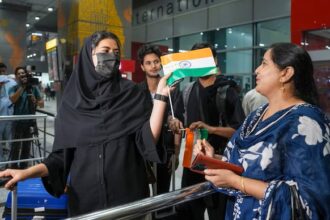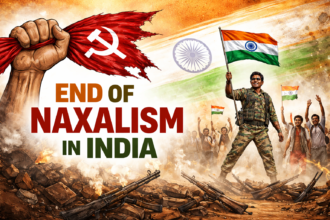Rahul Gandhi’s recent political strategy in India, especially with his repeated allegations against the Election Commission and the electoral process, echoes a troubling pattern observed in Bangladesh’s controversial elections, particularly those of 2013-2014.
Gandhi has repeatedly raised doubts, that too without credible evidence, about the legitimacy of elections through claims of vote manipulation, duplicate voters, and systemic bribery, targeting the Election Commission and positioning himself as the defender of electoral integrity.
In fact, Rahul Gandhi’s recent outreach to GenZ in India is quite disturbing. There appears to be similarities in his and tactics adopted to create political crises in Bangladesh. For the last decade and half, the electoral process in Bangladesh had been questioned the same way, resulting into awful consequences to that country’s democracy.
However, most recent defeat of the NSUI candidate in the Delhi University student union election at the hands of the ABVP though very clearly points out that Rahul Gandhi’s narrative and strategy practiced at the grassroots level have very little validity.
Rahul Gandhi’s plan of action, characterized by incessant accusations of vote manipulation, duplication, and systemic corruption of India’s electoral machinery, is somewhat reminiscent of the tactic Bangladesh opposition undertook in the early 2010s.
In that country, the opposition consistently raised doubts about the electoral processes, insisted on neutral caretaker governments, and finally boycotted elections thus accusing the government of quasi-autocracy that was led by Sheikh Hasina. Gandhi’s incessant skepticism about the fairness of elections in India and his attempts to get the Supreme Court involved, along with his rhetorical strategies that put him and his party above the institutional norms, are very much in line with the same playbook.
Nevertheless, the results of the Delhi University elections were an essential rebuttal to this argument. Despite Gandhi’s loud protest and youth mobilization efforts, the young electorate turned out to be the most decisive, choosing the ABVP from among all DU candidates.
This result is a strong indication of the gap between Gandhi’s narrative and the political reality of young Indians of which the BJP and its allies have been very successful in capturing. One of the reasons why Gandhi’s monologues fail to work and his fanship among the audience he tries to influence is that his monologues rarely face direct questioning and leave interpretation to political opponents and media.
There are three major similarities of Gandhi’s modus operandi with Bangladesh political crisis such as consistently questioning the honesty of electoral processes, threatening or implicitly suggesting ahead of ballot boycotts and not surprisingly, targeting youth as the revolutionaries of tomorrow.
This stratagem resulted in Bangladesh opposition parties pulling out from the polls which international monitors viewed as a move towards autocracy. Gandhi’s argumentative style, often suggesting rigged elections and judicial activism as a solution to political stalemates, might cause this upheaval effect to resurface in India’s well-established democracy.
Nevertheless, Delhi University’s Gen Z seems to defy this storyline. Their voting decision signals their choice of involvement and commitment with the present democratic processes rather than going for the option of boycott or showing lack of trust. Political leaders have to learn this very important lesson: when you erode people’s trust in institutions without at the same time giving them some viable alternatives, you only deepen the divisions already present in society and undermine the democratic resilience.
Additionally, Gandhi’s position regarding the Supreme Court—implying that the judiciary should “come to him” rather than the other way around”—reveals that he considers himself above the democratic principles of accountability and dialogue. Democracies require all individuals and organizations, irrespective of their status, to abide by institutional procedures and, when necessary, seek help from the legal authorities. The experience of Bangladesh serves as a warning concerning the aftermath of the situation when the opposition actors put in the forefront the confrontation instead of the constructive participation.
To sum it up, we can say that the replication of Bangladesh’s questionable electoral tactics by Rahul Gandhi to win over India’s young voters carries great risks. While it may appear that his intention is to empower youths and challenge the alleged irregularities, the outcome of such persistent distrust, the possibility of election boycotts, and judicial overreach that affect the democratic fabric of India negatively, are what threatens a deep rooted democracy like India.
The recent elections in Delhi University though suggests that the Indian youth is more likely to engage than to reject the democratic process. Therefore, Gandhi needs to come to terms with this. It’s in the interest of the Indian democracy that he moved from doubting and monologuing towards dialogue and accountability. It’s high time he reconciled with the fact that he is just another politician and should respects India’s strong democratic institutions.
“The future of democracy is not in repeated accusations and withdrawal, but rather in inclusive participation, respectful discourse, and steadfast trust in the system’s ability to reform itself.”









